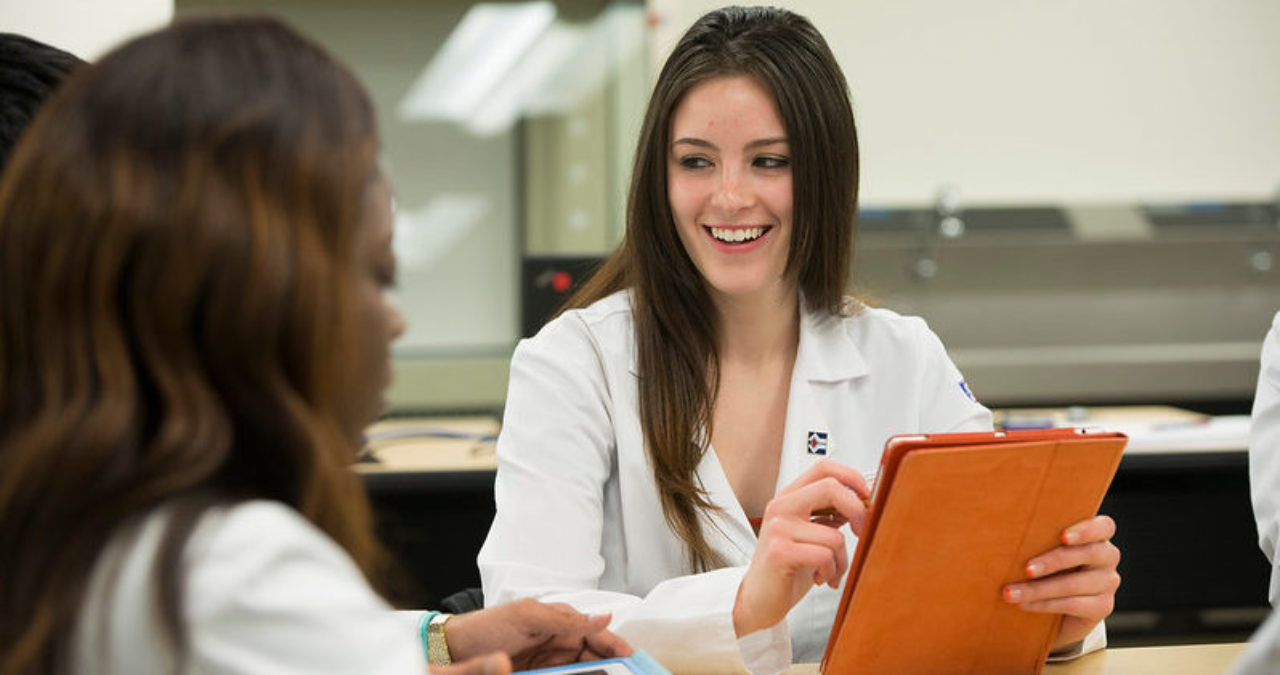Biology BS Veterinary Medicine DVM combined degree

While students can attend any veterinary school after earning a BS in Biology, some students may choose to apply for eight-year program BS in Biology (FDU) and Doctor of Veterinary Medicine with Ross University School of Medicine, St. Kitts and Nevis or St. George’s University, Grenada.
Students are admitted to FDU as incoming freshmen or qualified transfer students. They may apply to veterinary school upon successful completion of six semesters at FDU for the St. George’s accelerated 3+4 pathway.
The program prepares students interested in pursuing a Doctor of Veterinary Medicine degree to become successful veterinarians in the United States. The program is an accelerated program that takes a little more than three years. The last three semesters are spent on the campus of one of the U.S. veterinary schools affiliated with Ross University or St. George’s School of Veterinary Medicine. The U.S. Department of Education has certified Ross University School of Veterinary Medicine as an eligible institution for the Title IV U.S. Federal Family Education Loan program.
Admission Requirements
- High school seniors with a high school GPA of 3.25 may apply for admission to the combined degree program.
- All applicants for admission to the combined degree programs must satisfy secondary school preparation in English, mathematics, biology, chemistry, and physics.
- The high school GPA and rank in class, along with letters of recommendation from high school teachers, will be of primary importance in evaluating applicants’ credentials.
Qualifying for enrollment at Ross University, St. Kitts & Nevis
Students must meet the following criteria to qualify for admission to the veterinary phase of the program:
- Completion of all FDU curriculum requirements, including the general education requirements and the degree program requirements for the major and all prerequisite courses required for admission at Ross University School of Veterinary Medicine. Students must obtain a GPA of 3.00 or higher in prerequisite courses with no C-, D, or F in any of the courses
- An overall GPA of 3.2 or higher for admission to Ross University.
- GRE not required
- At least 100 hours of shadowing at a veterinary clinic, animal hospital, or animal rescue.
Qualifying for enrollment at St. George’s University, Grenada
Students must meet the following criteria to qualify for admission to the veterinary phase of the program:
- Completion of all FDU curriculum requirements, including the general education requirements and the degree program requirements for the major and all prerequisite courses required for admission at St. George’s University School of Veterinary Medicine. Students must obtain a GPA of 3.00 or higher in prerequisite courses with no C-, D, or F in any of the courses
- An overall GPA of 3.4 or higher for admission to SGU.
- GRE not required
- “significant” experience working with companion and large animals.